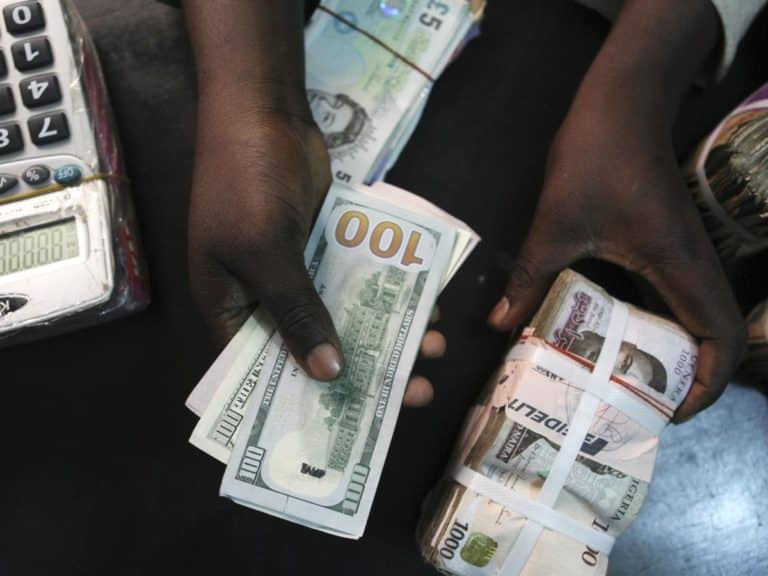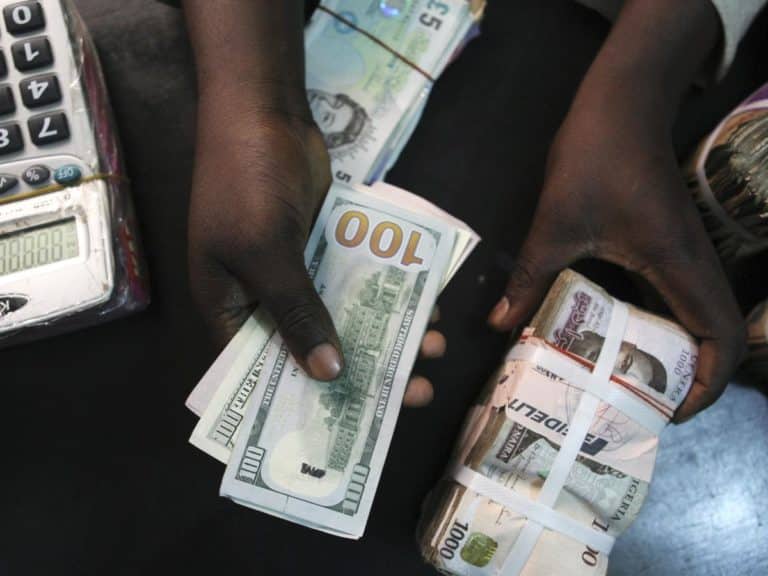Business & Economy
Why There Is Little Reason To Save In Naira
The Nigerian naira is currently facing what is perhaps its most existential threat as purchasing power for Nigerians whittles down. Since the crash in oil prices last year and the ensuing Covid-19 induced lockdown, the exchange rate has suffered multiple devaluations, losing about 28% in value when compared to the dollar. The implication is that more and more savvy investors are dumping the naira in exchange for more stable currencies.
At the forefront of the issues facing the naira is the rising inflation which is gradually affecting the purchasing power of households and businesses. No doubt that people who keep a large portion of their assets in cash will suffer a loss of value as a result of inflation, which incidentally, is showing no signs of abating anytime soon.
Notwithstanding the gloomy outlook, there are investment alternatives that allow individuals and corporations to outperform inflation and increase wealth. That being said, here are a few things to think about before you start saving in naira.
The rate at which the naira depreciates
Nigeria has a multi-currency regime which has made most businesses uncomfortable and prompted calls from the World Bank and IMF for rate unification, to attract investment. Nigeria maintains that it manages a float exchange rate but these claims have fallen on deaf ears.
Rising dollar demand has put pressure on the naira as foreign exchange providers, such as offshore investors, have exited the market, following the COVID-19 pandemic which caused a drop in global oil prices.
Despite a 128% increase in dollar supply, the naira has recently fallen at the official market. Meanwhile, the naira is trading at N503 at the parallel market, where it has remained relatively stable.
High inflation eroding purchasing power
Nigeria remains plagued with double-digit inflation of 17.93% as of May 2021. However, this inflation rate seems to be a subtle reflection of reality as most prices of essential commodities such as pure water have reportedly seen a 100% increase.
This high inflationary situation exacerbates the erosion of purchasing power. This poses a concern for speculative and foreign investors who would be expecting their investments to surpass the inflation rate to earn real profit. The fact that the inflation rate does not reflect the true circumstances of things in the broader economy coupled with the issues of unstable inflationary rates, has seen many investors turn their backs on the Nigerian economy and ultimately, the naira. Hence, saving in naira can be a futile effort, especially when high inflation acts as a major catalyst in reducing the real value of your wealth.
High risk of investing locally
According to recent CBN reports, only Abuja and seven Nigerian states were able to attract foreign investments in the first quarter of 2021, implying that the remaining 29 states received no foreign investments. The overall value of capital inflows fell to 9.7 billion dollars in 2020, down from 24 billion dollars in 2019, a 59.7% decrease.
This decline reflects foreign investors’ strong scepticism about investing in the country. These concerns typically revolve around situations such as banditry, farmers clashing, an increase in kidnapping and the murder of innocent citizens.
Also, Nigeria in the last 2 years has posed to be a country with high regulatory risk. Many startups such as Opay, Gokada, Luno and others have seen their businesses come to an end or face a decline as a result of regulatory uncertainty in the country. Some compare the regulatory uncertainty in Nigeria with that of the ever-volatile cryptocurrency market as the government makes decisions without consulting stakeholders. The recent Twitter ban is a prime example.
Another pressing issue is the disparity between the official I&E window and the parallel market exchange rates, which difference can be as much as N90. This disparity in rates has made investing in naira a riskier proposition, which is why investors are fleeing despite the bullish oil prices.
Cryptocurrency and dollar-based investments
Dollar-based investments like cryptocurrencies, Eurobonds and US stocks, are more appealing to investors than saving in a depreciating naira. Despite the recent downturn of the cryptocurrency market, investors have enjoyed outstanding profits due to economic recovery led by COVID-19 vaccinations. Investing in this class of asset has been seen to be more profitable than saving in naira.
Finally, the naira remains our legal tender and is not going anywhere soon. For those who continue to earn salaries or income in naira, the concern should be what to do to ensure the preservation of wealth. Our analysts suggest it is better to invest in assets that can generate returns above the current inflation rate. However, this might not be possible as the investment climate also appears convoluted. The approach, therefore, is to invest that money in assets that can at least deliver anything above your conventional savings deposit rates.
Better still, seek dollar-earning businesses or ventures which will help hedge against exchange rate challenges. We also suggest front-loading costs as early as you can to avoid even more erosion of purchasing power.



